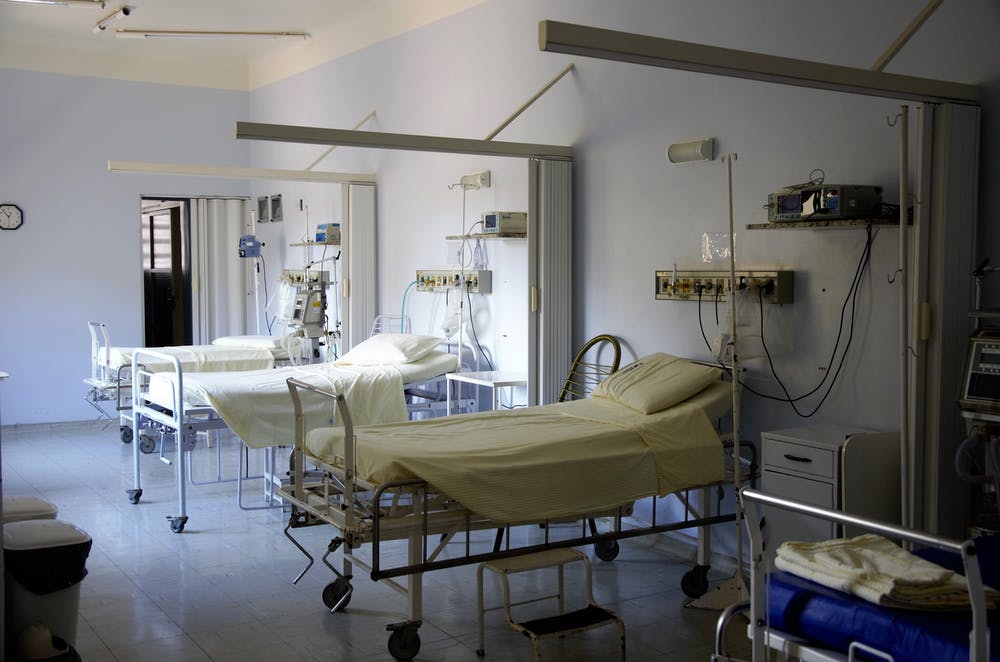

Incidents involving patients acquiring pressure sores while in healthcare settings are on the rise – despite pledges of action sparked by the death of an elderly man with a severe wound four years ago.
Pressure ulcers are damage to the skin that comes from sustained pressure, with the most serious cases resulting in full tissue loss, and potentially bone, tendon or muscle being exposed.
They can happen to anyone, but usually affect people confined to bed or who sit in a chair or wheelchair for long periods of time.
The latest Health and Community Services Advisory Board Report revealed that there has been an increase in the numbers of pressure damage acquired in care from 1.32 per 1,000 bed days in August, to 2.95 per 1,000 bed days in September – equating to 22 instances of pressure damage.
There was also an increase in 'category 2' pressure damage incidents – which are categorised by an open wound – from 1.16 per 1,000 bed days in August, to 2.46 per 1,000 bed days in September.
The issue wasn't specific to a single ward, the report noted. As such, all wards have therefore been provided with "additional mattress pumps and pressure relieving cushions to support delivery of patient care", it said.
"The tissue viability team continue to provide regular training and education to staff, patients and relatives," it added.
"There has been an increase in the number of pressure relieving devices provided to the wards in the past month to support the management of pressure area care."

Pictured: Pressure ulcers usually affect people confined to bed or who sit in a chair or wheelchair for long periods of time.
The report also confirmed that changes in the pressure ulcer reporting requirements have been added to the Datix system which is designed to collect and manage data on adverse events in health settings.
According to the report, this will "enable a more detailed analysis and development of improvement plans".
The report also explains that a joint initiative with the tissue viability and nutrition teams – dubbed the 'Inside and Outside Challenge' – has been launched to provide "extra resource to ward staff with regards to pressure ulcer prevention and management".
Earlier this year, a nursing charity called for the Government to provide more funding for equipment to prevent and treat pressure ulcers and more joined up IT across the Health sector, following an inquest into the death of an 81-year-old care home resident who arrived in hospital with a pressure sore one nurse described as "one of the most serious I've ever seen".
The inquest heard that education around the issue of pressure sores had improved since Roland Edmund Baldwyn Childe’s death in 2019, particularly following the introduction of an Island-wide Pressure Ulcer Prevention and Management Framework in 2021.
However, Family Nursing and Home Care confirmed that Mr Childe’s death had "helped to identify the need for further detail within the framework" — which was due to be reviewed this year.
The charity explained that “further detail surrounding escalation and clinical pathways will help to clarify responsibilities” in the revision of the framework, after Advocate Mark Harris admitted at the inquest that more could have been done with the benefit of hindsight.
Now, the Government has confirmed that the new Island-wide Pressure Ulcer Prevention and Management framework is currently being reviewed by the Health department and relevant stakeholders.
Next week, open events will take place for healthcare professionals to allow consultation on the draft framework.
It is anticipated that the framework will then be finalised during December for stakeholder approval in early 2024, with the new framework set to be launched in the first quarter of 2024.
Pensioner's death sparks calls for bed sore equipment funding
Death of 81-year-old to "aid future policies" on bed sore care
Safeguarding concerns raised after death of pensioner with "serious" bed sore
Inquest to determine if elderly man's bed sore care was correct
Comments
Comments on this story express the views of the commentator only, not Bailiwick Publishing. We are unable to guarantee the accuracy of any of those comments.